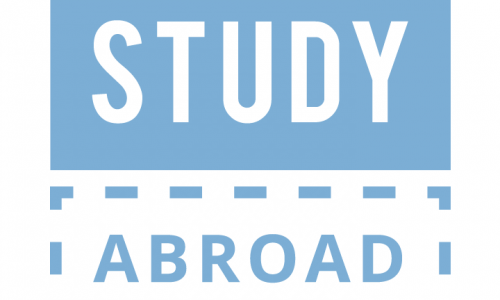Choosing a Global Experience
Even if you are undeclared and unsure about your future career goals, now is the time to consider a global experience at UNC. Two very basic factors that will guide your decision-making are the location of your experience and the language(s) spoken in that location.
If you have no idea where you want to go:
That’s okay! First thing’s first: dream big. If you could go anywhere in the world, where would it be? If you have a specific academic interest, research what countries have innovative approaches to your discipline. Chatting with your favorite professor or someone within your field of study might help you narrow down your options.
If you still feel a bit stuck, attend a general or regional Study Abroad 101 Info Session or make an advising appointment with someone at the Study Abroad Office to hone in on what area of the world night fit your needs and goals.
If you already know which region/country you want to visit:
Start by doing a search by region or country on the Study Abroad site to see what opportunities may already exist in your preferred location, and don’t forget to consider outside internships, funding and opportunities you can search through in the Embark Funding Finder! You can also reach out to one of UNC’s Area Studies Centers that focuses specifically on a world area, and if you’re interested in finding a faculty member with expertise in a specific world region, explore our Global Experts Database.
Have you ever wanted to study a less commonly taught language like Turkish or Portuguese? Do you want to improve your Spanish (or Arabic? Or French? Or Urdu? Or…)? Or maybe would you feel more comfortable in an English-speaking environment? Your global opportunity could focus on language learning, or you could travel to an English-speaking country. There may even be specific funding available for that Punjabi class you’ve always wanted to take.
If you’re interested in studying a less commonly taught language (excludes Spanish, French and German), there are many opportunities that are fully funded through the Foreign Language and Area Study (FLAS) fellowship and the Critical Language Scholarship (CLS) program. Several of these scholarships require no prior knowledge of the language.
For Study Abroad options, you can conduct an advanced search on “Language of instruction” to find the programs that are pre-approved by UNC.
Beyond those factors, there are several different program types that UNC students can choose from. Broadly speaking, global opportunities can either be non-credit (internships, service-learning trips, volunteering internationally, research) or credit-bearing (study abroad, internships), each having its own pros and cons.
Global experiences extend beyond the traditional study abroad program to include independent internships, international volunteer opportunities, research projects and service learning. Many students choose to participate in these types of global experiences because they fit into students’ budgets and busy schedules.
Volunteer experiences are also common options for short-term trips. They can be entirely self-directed and independent, but there are also volunteer opportunities directly affiliated with UNC. For example, the Carolina Center for Public Service sponsors a spring break work-trip to Honduras in collaboration with Habitat for Humanity. Spring break trips like this are sometimes called “alternative breaks.”
Increasingly, faculty members are incorporating a short-term trip in a course, and these are sometimes called “embedded courses.” Participating in a class that includes a global experience is one way to fulfill your Experiential Education requirement. Below are just a few examples:
- APPLES Global Course Guanajuato (GLBL 382)
- UNC Kenan-Flagler Business School global immersion electives
- Central Europe: Budapest and Prague, South Africa, South America: Chile, Southeast Asia, United Arab Emirates
- UNC School of Media and Journalism short-term global immersion programs
- MEJO 447: International Media Markets: London
- MEJO 490: International Media Markets: China
- MEJO 584: International Projects
- MEJO 625: Media Hub
Internships are great resumé-builders and may help you gain insight into a specific field or job type. Global internships have the added benefit of strengthening language skills and diversifying your portfolio. There are also global internship opportunities locally and abroad that are not for credit, but some internships are actually credit-bearing, in fact some UNC Study Abroad programs have internships built into the program itself.
Thinking about an international internship that matches your field of study? Consider contacting a UNC Career Services Counselor.
Resources: AISEC-Global Talent, UNC Handshake, Going Global
The Study Abroad Office helps students choose from among 400 programs in more than 70 countries. Are you interested in joining fellow UNC students on a major-specific program, like Economics in Croatia, Environmental Studies in the Galapagos Islands, or Theatre in London? Or are you perhaps interested in an exchange program that sends you to the University of Hong Kong for a semester? There are several different study abroad program types to choose from that can greatly affect the level of cultural immersion, the cost and the credit transfer process.
Use the Study Abroad Office’s Simple Search to locate a program that suits your needs, and attend a Study Abroad 101 Info Session, email a Study Abroad Peer Ambassador, or get more information on their Facebook page.
Not just for Science majors! Conducting research provides you with the chance to perform in-depth study on a particular topic while also gaining transferable skills and helping to define your academic and professional interest; research can also offer you the opportunity to form deep relationships with mentors and professors. UNC offers a Summer Undergraduate Research Fellowship (SURF) to students engaged in summer research, scholarship, or performance in any discipline.
Consult our Global Experts Database to see what kind of research is occurring at UNC. Then, reach out to specific faculty or departments to see what opportunities or initiatives might be out there.
